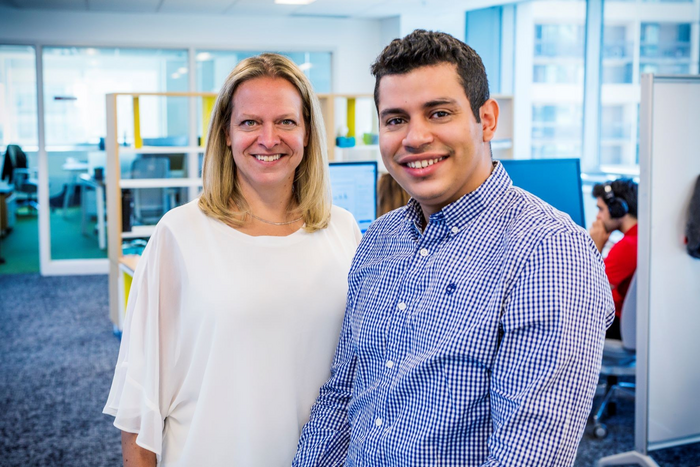The construction industry’s green pivot faces a number of challenges, even as more city governments and home buyers are increasingly pushing for more sustainable new homes and buildings. Among the obstacles standing in the way of greener construction are the industry’s natural cautious approach to innovation as well as its dominant profit models, which favour previously profitable habits and techniques.

Credit: Concordia University
The construction industry’s green pivot faces a number of challenges, even as more city governments and home buyers are increasingly pushing for more sustainable new homes and buildings. Among the obstacles standing in the way of greener construction are the industry’s natural cautious approach to innovation as well as its dominant profit models, which favour previously profitable habits and techniques.
In a new paper published in the journal Sustainability, three Concordia researchers from the Next-Generation Cities Institute (NGCI) outline those obstacles and offer practical incentives local governments can offer to encourage private green real estate development.
The study also looks at the key stakeholders and building life-cycle process to identify ways to reduce the industry’s overall carbon footprint. Change is urgently needed, they write: according to the Global Alliance for Buildings and Construction and the United Nations Environment Program, construction and the built environment account for 38 per cent of global greenhouse gas emissions.
The study stands apart from other academic papers examining the construction industry. Its lead author, PhD student Natalie Voland, is president of Montreal-based real estate developer Gestion Immobiliere Quo Vadis and co-director of Concordia’s recently announced zero-carbon buildings accelerator. The paper relies largely on Voland’s own experiences operating a certified B-Corp, part of an international movement that emphasizes sustainability through business.
“As a board member of the Montreal Climate Partnership, I realized very quickly that developers have no clue how to become climate neutral,” she says. “They didn’t have the expertise or the knowledge, and the current business models do not work.”
Voland believes that this study, co-authored by Concordia Public Scholar Mostafa Saad and NGCI co-director Ursula Eicker, can be used as evidence that a massive shift towards greener buildings will eventually earn developers who create new business models standard profits for their investors and finance requirements.
Sustainable precedents
The authors write that the realities facing developers — the need for quick term returns on investment, stable financing and satisfying multiple stakeholders, among many others — can be addressed most easily by municipal policies and incentives that merge private goals with the public good. Fast -track zoning, density bonuses, tax breaks and expertise and supplier sharing are all tools cities can use to promote green projects.
“In my experience, these incentive-based types of zoning/regulatory processes were often blocked by city officials, who said that they would set a precedent of favourable treatment for green building projects,” says Voland. That precedent would be the point.
“This way, the city would be telling a developer that if they build something that benefits the environment and the community, they would get an incentive that would benefit their financial models.”
Building on experience
Eicker adds that Voland’s experience contributes much needed depth to the subject area, which she says is lacking large datasets and academic literature.
“There is a real challenge in translating an individual like Natalie’s experience into scientific facts,” Eicker says.
“But we can substantiate parts of the existing literature by bringing her empirical knowledge into a systemic form, and that is what makes this paper so interesting. It is about real dynamics, and how we can make sustainable projects happen.”
“This paper is like a map of what is out there now. We are mapping Natalie’s experience in the industry and the real obstacles and barriers that exist,” adds Saad.
“These may not be very evident to academics, who have to observe a subject from a very high level. We need this kind of practical experience to be able to get these insights in an academic way.”
The authors feel the paper’s real-world applications can be used to explain the value of green buildings to developers, bankers and policymakers through their accelerator going forward.
“We are not trying to say, ‘What is a better building?’” explains Voland. “We know what a better building is. It’s about how we implement it.”
This research received funding from the Canada Excellence Research Chairs Program.
Read the cited paper: “Public Policy and Incentives for Socially Responsible New Business Models in Market-Driven Real Estate to Build Green Projects.”
Journal
Sustainability
DOI
10.3390/su14127071
Method of Research
Case study
Subject of Research
People
Article Title
settings Open AccessArticle Public Policy and Incentives for Socially Responsible New Business Models in Market-Driven Real Estate to Build Green Projects
Article Publication Date
9-Jun-2022
COI Statement
The authors declare no conflict of interest.




